By Julie Moir Messervy, with photos by JMMDS.
Restoration in progress at Tenshin-en, The Garden of the Heart of Heaven, at the Museum of Fine Arts, Boston.
Last month I drove down to Boston to welcome two old friends who had flown in to Logan Airport from Japan: Shiro Nakane and his wife, Michio. Shiro is the son of Professor Kinsaku Nakane, the garden master with whom I apprenticed in my mid-twenties and early thirties (a very long time ago now!). He came to Boston to help make decisions about the renovation and restoration of Tenshin-en, The Garden of the Heart of Heaven, the beautiful quarter-acre Japanese garden designed by his father for the Museum of Fine Arts that first opened twenty-five years ago almost to the day.
Shin Abe, Shiro Nakane, and Julie
Shiro San and I met with museum staff, including project manager Karen Haley and Deputy Director Katie Getchell, and with Shin Abe, the owner of Zen Associates of Woburn, MA, whose design/build firm is in charge of renovating the garden. We three all worked together in Kyoto during my first visit to Japan, and although we’ve each gone in separate directions in the intervening years, we share a common love of traditional Japanese gardens. Shiro San has continued his father’s tradition, building gardens all over the world. Shin Abe’s firm builds Japanese gardens, but also contemporary landscapes around the country and beyond. And you all know what we do—landscapes that may not look Japanese, but derive their form and feeling from a place of beauty and meaning.

MFA photographer John Woolf and Shiro display photos of Professor Nakane.
The three of us spent many hours going over detailing issues related to plant replacement, removal, or pruning, renovations to the existing gate, focal elements, and paths, and various technical issues related to lighting and irrigation. We also chose several black pines from Shin’s collection that he has since transported to the garden and planted there.
At lunch, we were joined by Alpha Tau Gamma volunteers from the Stockbridge School of Agriculture who are generously helping to complete the work. Shiro’s wife Michio is seated between Shin and Shiro. At right is Jim Mulcahy, who spearheaded ATG’s efforts on behalf of the museum.
It is very gratifying to see this beautiful work of art being restored. Tenshin-en will be closed during renovations until it reopens in 2015.
On a different note, another colleague who spent time at Nakane Garden Research Institute is David Slawson, the author of Secret Teachings in the Art of the Japanese Garden and designer of many Japanese-style gardens in the US. He has recently released a video called Evoking Native Landscape Using Japanese Garden Principles. You can view a preview of this film here. Enjoy!

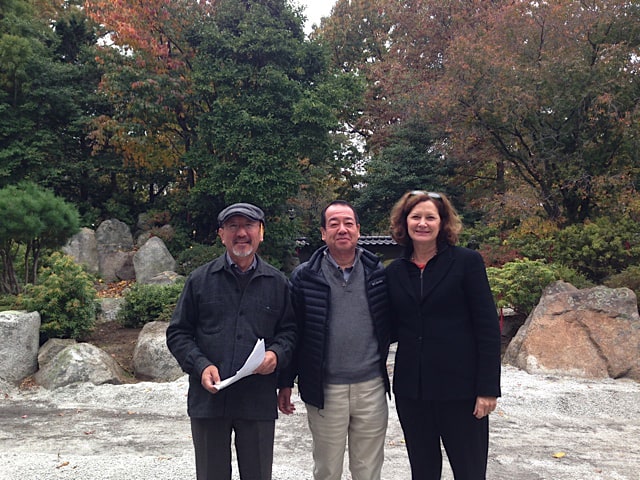
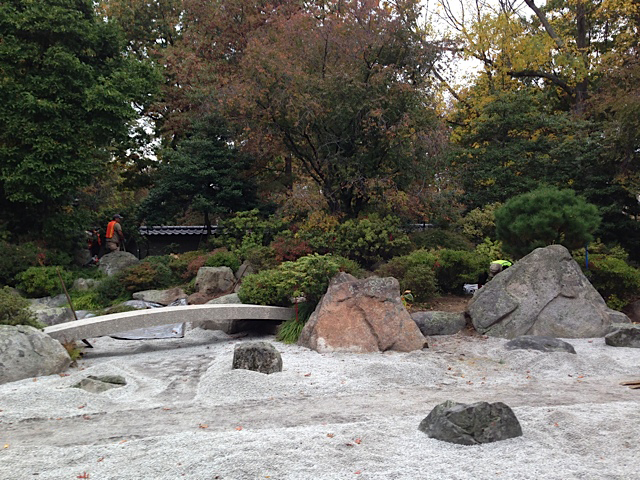

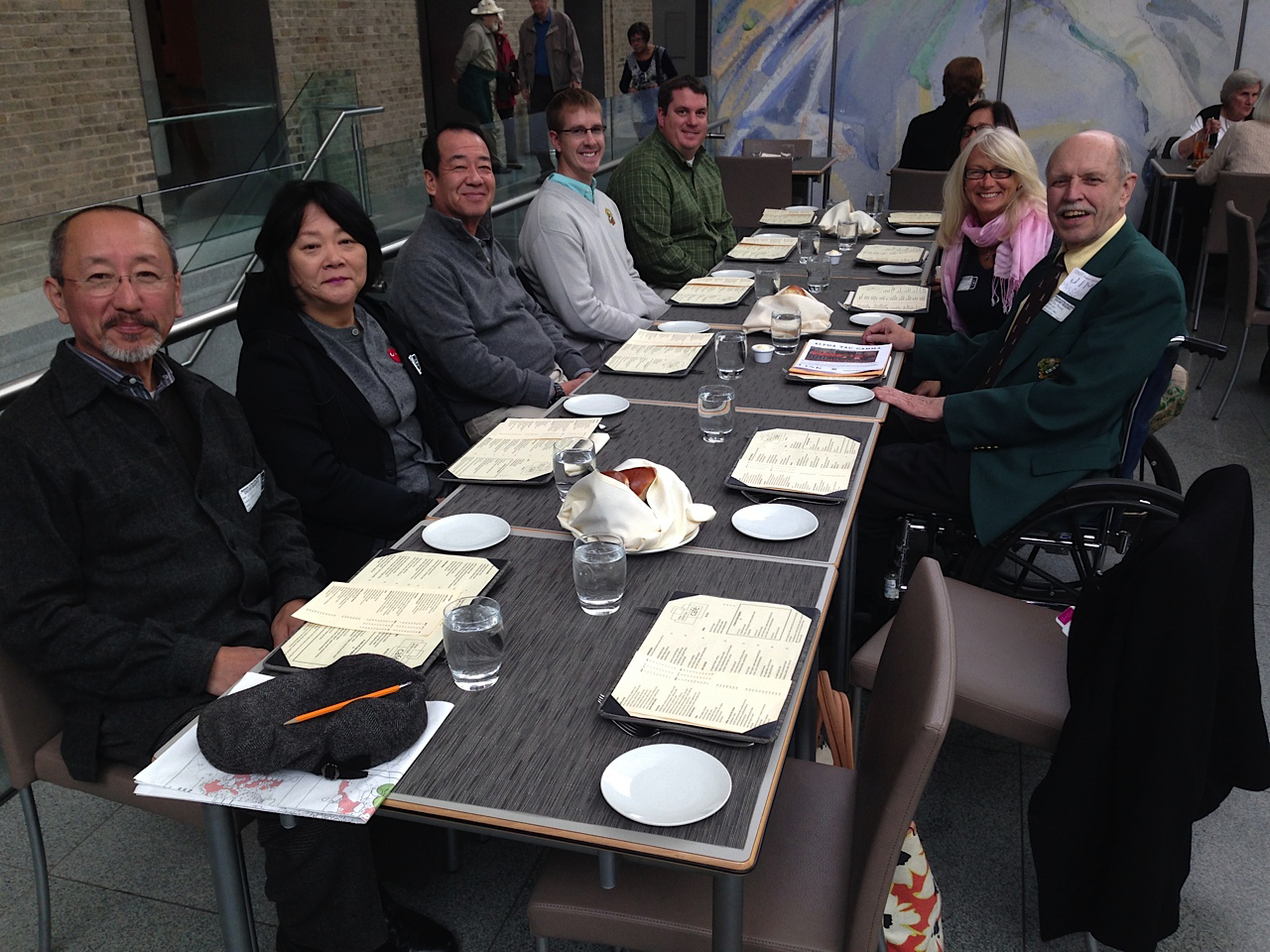



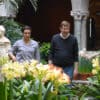
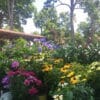
What a wonderful opportunity, Julie. Full circle feelings.
I hope you’ll post more on this renovation, telling and showing us why some plants are removed/replaced while others are pruned.
What is the balance between renovation (pruning) and starting over?
Is it obvious to you all as a group – “That’s got to go!” or is there discussion-“Three votes to keep and prune, two to remove.”
What’s the balance between recreating what was there originally vs how the garden is seen and used today?
Patrick,
We’ve been doing major pruning in the garden for several years now, thanks to the kindness and hard work of ATG volunteers from the Stockbridge School of Agriculture. We removed or drastically pruned overgrown trees and shrubs. It really depended on how overgrown they had become and whether we could return them to an appropriate size and scale.
We did select new black pines to replace the Tanyosho pines on the islands which had grown too large for the space. With careful pruning every year, they should remain an appropriate size for years to come.